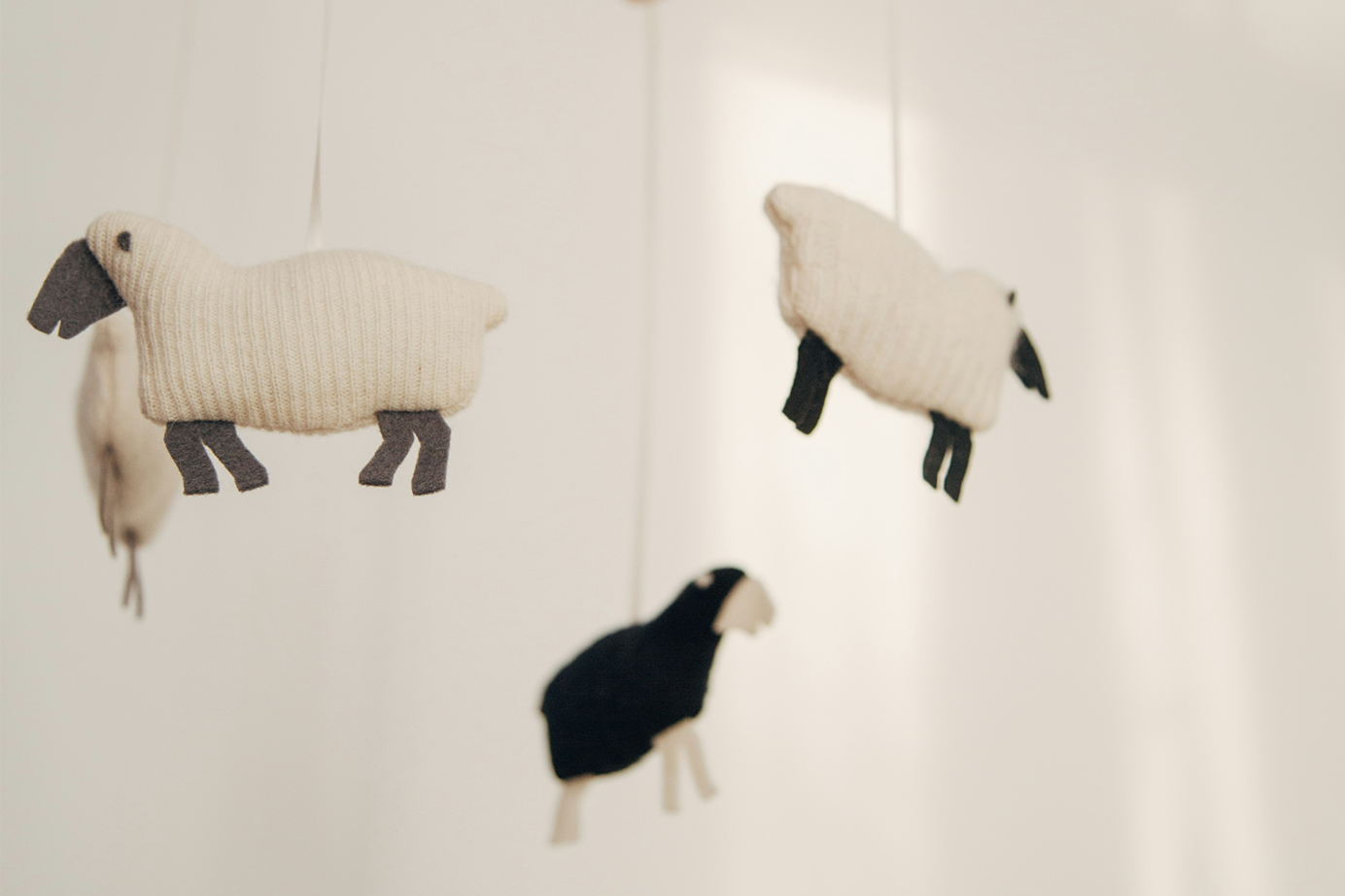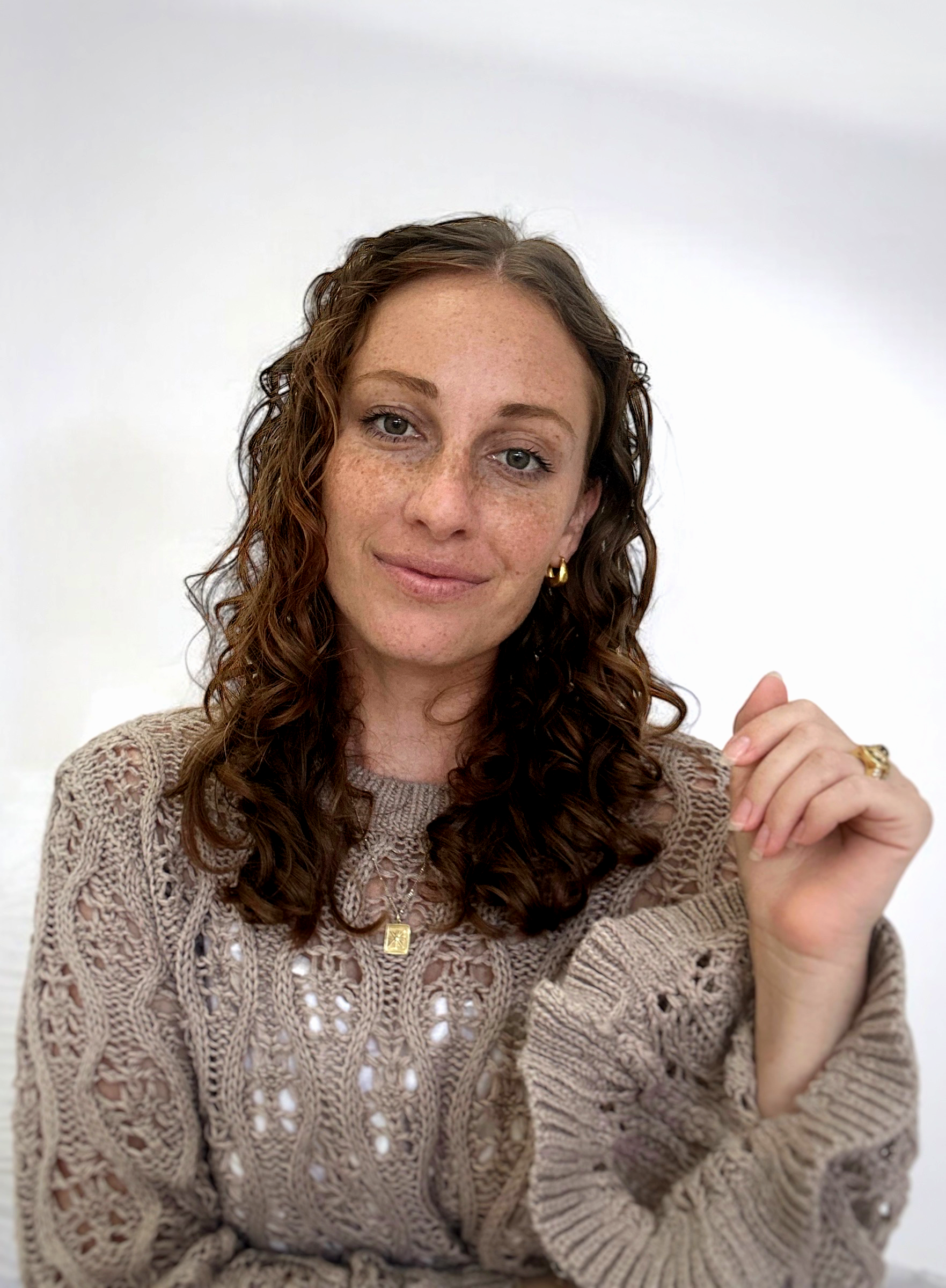Featured in

AT 11 PM, ON the eve of my daughter’s birth, I curled up in my hospital bed as contractions swallowed my stomach.
I had always imagined my mother holding my hand and my partner rubbing my back from the very first contraction, holding me in turn as I brought our new addition into the world. But Brisbane had entered another Covid lockdown that day. My partner and mum weren’t allowed to enter the birth suite until labour had progressed more.
Until then, it was just me and my baby I was yet to meet. The emptiness of my room threatened everything I wanted for my matrescence. Between contractions and my baby’s reassuring kicks, I doubted this new version of the woman I was meant to become.
Little did I know, my foremothers had been preparing me all along.
You see, my matrescence didn’t begin with my daughter; it didn’t even begin with me. They say it takes a village to raise a child; I say it takes several generations to raise a mum.
WHEN MY DAUGHTER arrived, it was the most warming, wholesome moment of my life. She nestled into my chest, and I watched in awe as her big brown eyes took us all in. After a tumultuous pregnancy, the elation of lying safely with my daughter on my chest, eating the best toastie of my life, was like no other. I could have relished it for hours – except I only had about one before I was transferred to the ward, and Mum couldn’t come with me. In her absence, I quickly realised she was my calm, my anchor.
That night, my daughter was up and down every twenty minutes. In and out of sleep, I leaned on the bedside crib with my hand patting her chest. Her cry echoed through the ward at 2 am, telling me she wanted to be held. I picked her up and nestled her in the crook of my arm. Looking down at her full head of dark hair and her poised lips, I saw my mother fifteen years earlier. I saw her lying alone in her hospital bed at 2 am, cradling my baby sister (her fourth child), whose newborn sounds echoed through the ward. I awkwardly readjusted my hold, my daughter’s tiny head rolling into my palm as I attempted to lull her cries. What would Mum have done next?
I pulled my shirt down to let my baby’s skin rest on mine and felt her shoulders droop towards my heart, anchored and calm. The heavy sense of content from her tiny body pulled me out of my sleepy blur, a reminder that she had been part of me for the past eight months, tied to the rhythm of my heartbeat as it created hers. It was all she knew. It would be a slower journey to becoming two.
Despite the victory, I quickly learnt that what worked one minute wouldn’t work the next. I found myself recalling conversations from my childhood. I always just fed mine – Mum. Just add water – Nan. I just go for a drive – my sister-in-law. Background conversations that I paid no mind to at the time, yet they had buried themselves deep in my heart.
These women and their words held me through matrescence. But in those early months, it was hard for me to discern all that I already knew.
WOMEN HAVE LOOKED to their mothers and grandmothers for eternity as they’ve learnt how to mother. However, the ear-piercing noise of today’s digital world has interfered with the passing down of our family’s ways of mothering.
I look back to my transition into motherhood and see how I succumbed to the noise of social media. I was stolen by other mothers who were not my family, not my culture, not the mother I was supposed to be. My own foremothers became white noise, and these foreign voices told me how to get my child to sleep through the night, how to feed her, what she should and shouldn’t be doing in her first year. It was exhausting and dangerous. I can’t believe that I almost let it break the traditional ways of my family line, ways that centred comfort, understanding, guidance and love, shown through sympathy, wisdom and nurturing, whether for our hearts or our bellies.
The mothers in my family come from different cultures. My mother is British and Indian, my maternal grandmother is Indian and my paternal grandmother is Wiradjuri. Throughout my life I’ve felt some disconnection from my heritage. But I’ve found solace in food – and that solace has held me through matrescence, guiding me to become the mother I am now.
SHARING WARMING FOODS with extended family defined culture in my childhood home. I have no doubt that this connection is universal for all the mothers who raised me, from my grandmothers to my mother to me. I know we inherited that from our foremothers.
My great-grandmother passed away in 2014, before I became a mother. Nanny’s house was always full of cousins, uncles, aunties, friends. No matter how many people or how little money Nanny had, everyone there would leave with a full belly.
At her funeral, I watched literally hundreds of people celebrate her life: the woman who raised them whether she was their mother or not. I watched my mum, her sister and cousins swarm inside like bees in a hive as an aunty called from the kitchen that there was halva inside. They sat in silence scoffing it down. Finding comfort in the legacy my nanny had left: love, connection and heritage on a plate.
The mothers in my family who came before me endured tough lives. Money was scarce, as was security. Many faced prejudice and were told they couldn’t practise their religion or culture. Inevitably, they couldn’t mother the way their ancestors had. I see the way my great-grandmothers would have navigated motherhood in a world built against them, and I see a line of women who created their new way of mothering that made me who I am today. Shaped by their struggles yet filled with their undying love. The close relationship I have with my children and the way I comfort, love and guide my babies is because of the sacrifices made by my great-grandmothers and the women who came after them.
I began finding comfort in those dishes that took me back to my childhood, to when my mum was deep in the trenches, holding our tiny hands and comforting our cries. When she would thread words of distraction around our big emotions to pull us back into the present. Those moments were often laced with homemade slices or whatever sat in the clear Tupperware container that lived next to the bread bin.
I often imagine all the women in my family (those still here and long gone) sitting around a table laden with their favourite dishes: warm scones, spicy prawn curry, chicken and rice and more. They share stories of their children and the ways of their mothering, and I wonder, what would they say to me? I look to that table when tides of struggle through my matrescence wash over me.
My second baby gave me back to the women before me. The chaos of holding a baby in each arm forced me to put down my phone. The only place I could look was internally, to the manual etched into my heart. Who would have thought two would be easier than one? Don’t get me wrong, two is harder on my arm muscles and eyelids, but it’s easier on my heart and mind.
I could finally see the things I was given to become a mum. And finally, my mother and my grandmother’s voices echoed words of affirmation and guidance in every moment when I thought I didn’t know.
ON THE HARD days, you will find my daughter and me in the kitchen. My youngest joined us in the baby carrier, then the highchair, and just yesterday he mixed his first cookie batter before helping himself to clouds of buttery brown sugar – just like I did as a toddler. The three of us recreate the recipes that, for the past thirty years, have graced my lips and taken me home.
The smell of warm peanut butter and relics of hot caramel stuck to my chin transport me back to the countless hours my beautiful mum spent not only teaching me how to cook but how to bring myself home whenever I couldn’t literally be there. And the taste of spicy curry and chocolate Coke cake takes me back to my nana’s kitchen, where I parked my chair under her hand-painted wooden calendar to fiddle with the interchangeable numbers, lick wooden spoons and relish in the presence of my nana’s golden heart. Just like crumbling ginger slice and a sneaky bite of devon brings that green apron to mind. The same apron my now three-year-old daughter wears. It still reaches the floor, but oh, the stories it could tell. I hope my children look back to their childhood and find comfort in similar memories that will hold them in their times of need like mine do for me.
My mum has told me many times how good a mother I am, how she wishes she had been more like me, how she shouldn’t have done this and that. But I am this way because of her. My grandmothers and my mother were given lives they had to heal from; my mother gave me a childhood I didn’t have to heal from. I hear my grandmother bite back and say, you do what you can with what you have.
My mum did more than her best, and so am I, with what I have.
Better, because of them.
Because of them, I am the mother I am.
This piece was commissioned by Allanah Hunt at State Library of Queensland’s black&write! project, supported by Queensland Arts Showcase Program funding through Arts Queensland.
Image credit: Charles Deluvio courtesy of Unsplash
Share article
About the author

Haylee Escalante
Haylee Escalante is completing her Masters of Writing, Editing and Publishing at UQ. Her novel in progress, Our Yesterday, was highly commended in the 2023...